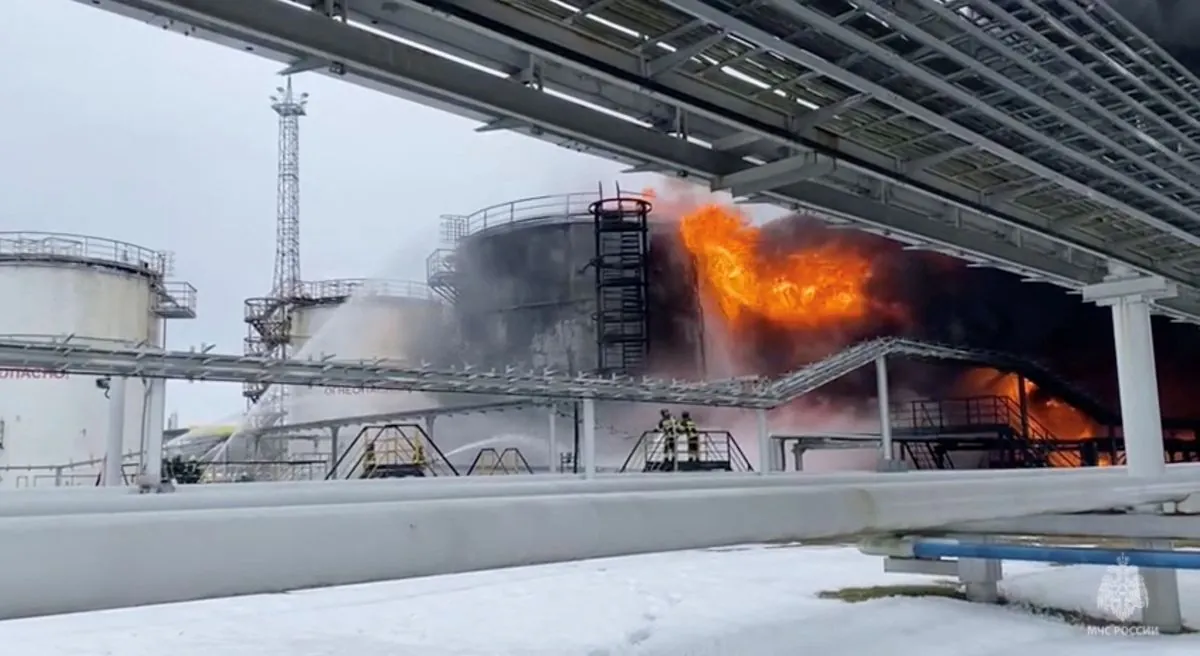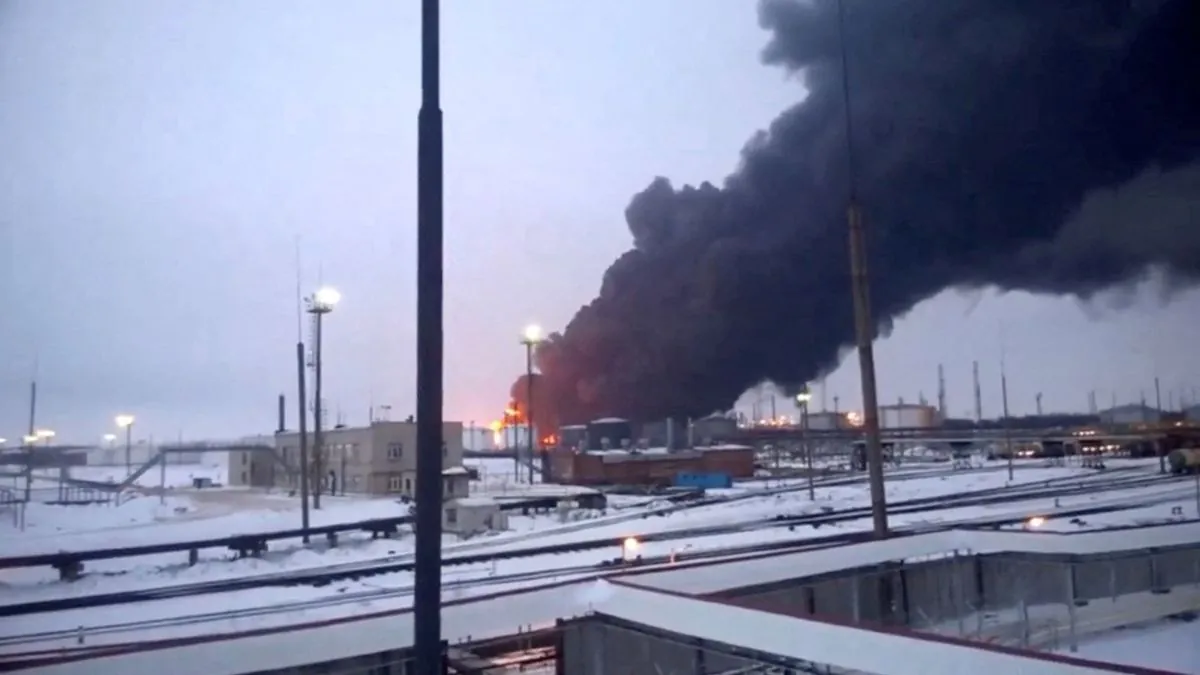Ukraine's Energy Warfare: Striking Deep into Russian Oil Infrastructure
Ukraine continues its deep-strike operations against Russian oil facilities, causing significant damage. The ongoing energy conflict raises questions about its effectiveness and broader implications for both nations.

Ukraine's military strategy has expanded beyond conventional warfare, now incorporating deep-strike operations targeting Russian oil infrastructure. This approach aims to disrupt enemy logistics and boost morale, while simultaneously engaging in a broader energy conflict.
Kyiv's forces have recently launched attacks on several key Russian oil facilities. A massive fuel depot in Proletarsk, Rostov Oblast, has been burning for days following a drone strike. The incident reportedly destroyed dozens of fuel tanks, potentially incinerating up to $200 million worth of Russian fuel. Additionally, a refinery in Novoshakhtinsk, also in Rostov Oblast, was targeted in a large-scale assault on Moscow.

Ukraine claims to have successfully attacked over 30 Russian oil installations this year, with estimates suggesting that approximately 17% of Russia's oil-refining capacity has been affected to some degree. However, the effectiveness of this strategy remains debatable.
Sergey Vakulenko, an energy expert at the Carnegie Russia Eurasia Center, notes:
"The drones can cause economic damage an order of magnitude or higher than the cost of the drones themselves, and so yes, there is some economic damage and net benefit, cost-wise. But the damage done is brief and relatively easy to repair."
Vakulenko adds that many targeted refineries may not be as critical as Ukraine believes, potentially limiting the strategy's impact on Russian oil revenues.
The energy conflict extends beyond oil infrastructure. Russia has systematically targeted Ukrainian power plants, significantly damaging the country's electricity generation capacity. This has led to concerns about Ukraine's ability to maintain power supplies, especially during peak demand periods.
Andrian Prokip, an energy expert at the Wilson Center's Kennan Institute in Kyiv, warns:
"We have not seen wide-scale attacks for six weeks or so. Russia may just be collecting missiles to attack later in the year, in October or so. As of now, there is no sign that weaponization of energy is weakening."
The conflict has also raised concerns about nuclear safety. The Russian-occupied Zaporizhzhia Nuclear Power Plant, Europe's largest, has been a source of tension. Recent incidents, including a fire at a cooling tower and a drone explosion near the power supply, have heightened fears of a potential nuclear disaster.
Darya Dolzikova, a research fellow at the Royal United Services Institute, cautions against Russian fear-mongering regarding nuclear facilities:
"The Russians have used and will continue to use the precarious state of nuclear safety at Zaporizhzhia for their own rhetorical and blackmail purposes. I suspect they may try to do the same in relation to the Kursk NPP."
As the energy warfare continues, both Ukraine and Russia face challenges in balancing military objectives with the need to maintain critical infrastructure. The long-term implications of this strategy remain uncertain, as does its potential to significantly impact the course of the conflict.


































